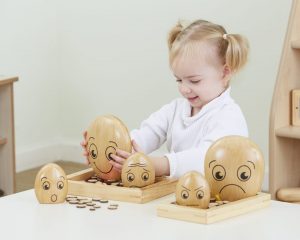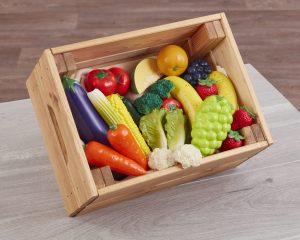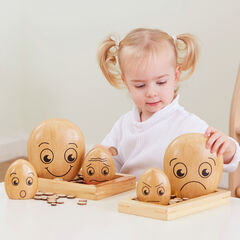This series of articles has been written by industry experts to help you to understand changes to the EYFS Framework. In this blog, Early Years consultant Alistair Bryce-Clegg looks at the Personal, Social and Emotional Development area of the framework.
For me, this is by far the most important area of the Early Years Foundation Stage. Without these skills, children will really struggle in their social interactions with others and not just in the Early Years. These are essential skills that children will need throughout their school career and into adult life.

The first thing that is useful to remind ourselves of is that children are not born with these skills. They have to learn them. Different
life experiences and expectations mean that different children learn them at different times.
Being able to understand your own feelings is hard, let alone being able to communicate how you feel. As Early Years practitioners, it is important that we understand how children develop a sense of their feelings and emotions. We need to accept the very important role we have in helping them to do that, knowing that sometimes it will be tricky.
Being able to understand your own feelings is hard, let alone being able to communicate how you feel.
I remember trying to make 3-year-olds in my Nursery class say ‘sorry’ for something they had done. I found myself in an impossible ‘stand-off’ situation. They weren’t able to understand or articulate what they were feeling, let alone apologise. I also used phrases like ‘Why did you do that?’ and ‘How do you think Amelia is feeling now you have done that?’ I was very much expecting adult reasoning skills from a 3-year-old.

It is through building up really strong and positive relationships with children that we can truly grow to understand their emotional language, as well as their spoken language. This can only happen through prolonged periods of social interaction with these children. We need to engage in activities that they enjoy but also support them in finding resolutions to the conflicts that naturally arise through shared play experience.
If we want children to learn how to recognise their emotions and be equipped to resolve conflict, then it is important that we don’t eradicate it from our environments. Whilst I am not suggesting that you encourage your children to have fullon fights, lots of opportunities for coaching and modelling will arise when children are laying claim to ‘that’ scooter, Elsa’s dress or the last of the Mobilo wheels! Don’t be afraid of conflict. It is a part of everyday life and relationships, so needs to be represented in our spaces.
What I soon realised is that it is hard to walk in someone else’s shoes when yours don’t quite fit yet.
The revised EYFS also places strong emphasis on children being equipped to look after their bodies and make healthy choices. Currently, in the UK, 9.7% of children aged 4 to 5 are classed as obese or severely obese (The British Dietetic Association 2021). Research shows that this will go on to have a significant effect on their life chances and opportunities. As well as including lots of information for children about looking after their bodies in the curriculum and activities that we create for them, we also have a great opportunity to give them possibilities to be physical both in creating an indoor environment that encourages movement and in embracing the huge benefits of outdoor learning.
Shop Personal, Social and Emotional Development resources here.
Interested in finding out more about the changes to the EYFS framework?
Click on the links below to read our other articles from Alistair Bryce-Clegg …
Thank you to Early Years consultant and expert Alistair Bryce-Clegg for the content included in this blog.





